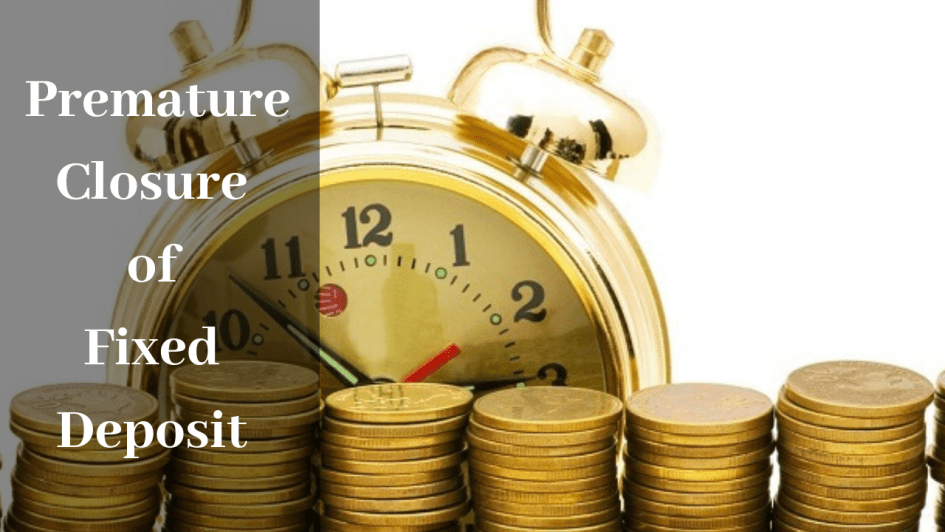How to Avoid Premature Closure of Fixed Deposit Account?

Irrespective of the number of financial instruments introduced by banks and prominent financial institutions, many people, especially the salaried class, prefer to stow away their money in fixed deposits (FDs). This is even though fixed deposits do not earn as much as other market-related instruments and promise a cumulative amount instead of regular interest payments.
Fixed deposit accounts opened with any bank are available in a variety of tenures ranging from as low as seven days to as many as 10 years. Misconstruing that liquidity is an inherent option available with fixed deposits for prolonged periods. This results in pre-mature withdrawals, thus, defeating the purpose for which the money was originally invested.
While fixed deposits promise a fixed amount, the biggest downside is that the interest you earn is not on the amount invested but for the period during which it is held. This means that you enjoy the benefits of the highest FD interest rates corresponding to the period during which the money had stayed invested. “Autorenewal” is another option available with FDs, which means that the total amount gets re-invested, if not withdrawn. However, declining rates of FDs mean that the FDs get re-invested at a lower rate.
Avoiding Penalty on Premature FD Closure
The sudden need for liquidity may cause many people to withdraw their investments prematurely. This results in paying penalty even on the meager amount of interest one earn on those investments. To ensure a constant inflow of liquidity while doing away with the problem of cash crunch, you must
- Multiple investments with different maturity: You never know when you would be in sudden need of money. A smart and safe way is to invest in different monetary options with varying maturity dates. One, you don’t have to fall back on your fixed deposits only when you need money. Also, one may consider investing in regular interest-paying options than opening multiple fixed deposit accounts. Short-term FDs also help as you don’t have to wait much to withdraw the maturity amount. However, the best idea is to first open a short-term Fixed Deposit (FD) and renew it for life to earn the compounding benefit.
- Seeking loans on fixed deposits: This is a benefit that banks will tell you when you approach them for loans. Just like any other asset, you can offer your fixed deposits as collaterals to take loans. Depending on policies, banks offer loans to the tune of roughly 90 percent of the total value of fixed deposits and can be taken up to the maximum tenure of your fixed deposits. Though loan rates are subject to change with modification in economic policies, the interest you pay on a loan is, in most cases, more than the highest FD rate announced so far.
- Sweep-in accounts: Not many people are aware of how investing in a sweep-in account can ensure dual benefits of interest earned on FDs along with liquidity inherent to a savings account. The interest rates of sweep-in accounts are the same as in fixed deposit accounts. Moreover, the bank charges no penalty on premature withdrawals.




